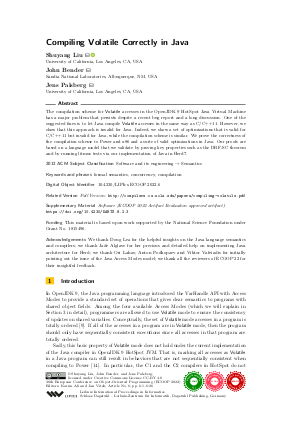LIPIcs.ECOOP.2022.6.pdf
- Filesize: 1.24 MB
- 26 pages

 Creative Commons Attribution 4.0 International license
Creative Commons Attribution 4.0 International license



Feedback for Dagstuhl Publishing